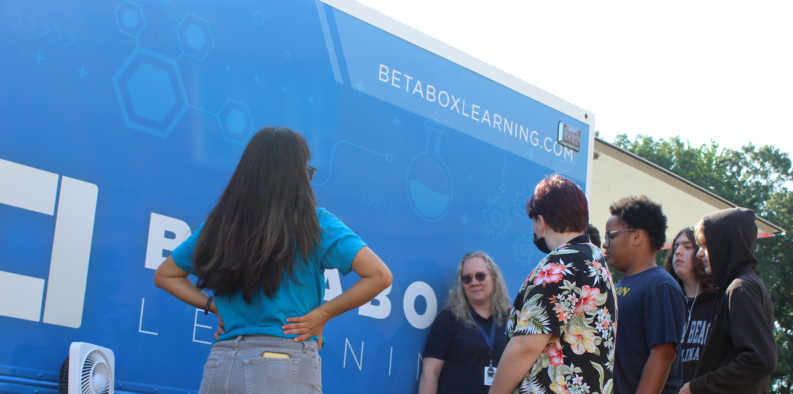Part 1 of a 2-part series
By: Rafi Vaca-Tricerri
Most teachers dream of autonomy in their classrooms and influence over school and district success. If the accountability of high-stakes testing and district mandates weren’t already enough of a constraint on the voices and professionalism of teachers, the COVID-19 pandemic only exacerbated the limits placed on what teachers could do in a traditional classroom setting. We chose a different path, and for good reason.
I am a former science teacher who worked at a traditional public high school in the United States. My colleagues at Betabox come from similar backgrounds, and we all have similar reasons for leaving the K-12 public education system. Not surprisingly, our motivations for leaving echo the findings of a national survey conducted by the NCES on the major reasons for teacher attrition: dissatisfaction with testing and accountability pressures, lack of administrative support, dissatisfaction with the teaching career, and dissatisfaction with working conditions.
At Betabox, we are still STEM instructors in every sense of the word, but our responsibilities differ vastly from our former roles. Our STEM instructors travel to secondary schools within the districts we partner with, including the Carolinas, Alabama, and Mississippi. More often than not, the schools we go to are underfunded or composed of underprivileged communities. Knowing the challenges these schools face, we ask ourselves: What can our hands-on, curricular experiences provide students that their in-class teachers cannot? How can our services inspire and uplift students to engage in future STEM opportunities?
At any given Betabox site, picture a small group of students (no more than 25) handling drones, robotic cars, 3D printers, and microcontrollers inside a sleek mobile lab that feels straight out of a cyberpunk’s dream. To quote the Founder and CEO, Sean Newman Maroni:
“[we] create a learning environment for students that feels like any modern work environment you would be in at the world’s most innovative companies like Google and Apple.”
We start by introducing the learning content to students for that day, asking questions to gauge their prior knowledge, stimulating their curiosity, and making connections to their daily lives. If this sounds familiar, it’s because teachers do this almost everyday. Or at least, they should. Our curriculum is simple but effective because we personalize it for each school we go to and for each student we see. In fact, what better way to facilitate a learning experience than to ask the students themselves what they want to learn?
I asked Justin, our Curriculum Designer, what differences stood out to him between the formal classroom environment he worked at and the informal one we create at Betabox. He responded:
“I enjoy the freedom I’ve been afforded to create content that is the future of tech education. It’s allowed me to create a different type of bond with students that I think in some ways is more powerful because of how rare and special it is.
Formal teaching can be very stifling at times and even nerve wracking because you have to hit certain standards a lot harder so you have less time to improvise or increase the depth of learning for a student. Informal [education] has allowed me to really cater to the individual and foster the learning of the student in a way that formal education didn’t.”
Like Justin, I have also experienced a significant shift in being able to reclaim my authentic teaching style and foster thoughtful discussions. I loved doing exactly this in a formal classroom setting, but wasn’t given enough time and opportunity to do so. And although there is tremendous value in our public schools and teachers, not all teachers can fit into the traditional classroom mold.
In my next post, I’ll explore more about the specific pedagogical benefits of informal learning environments and include more insights from other former teachers that now work at Betabox… Stay tuned!

